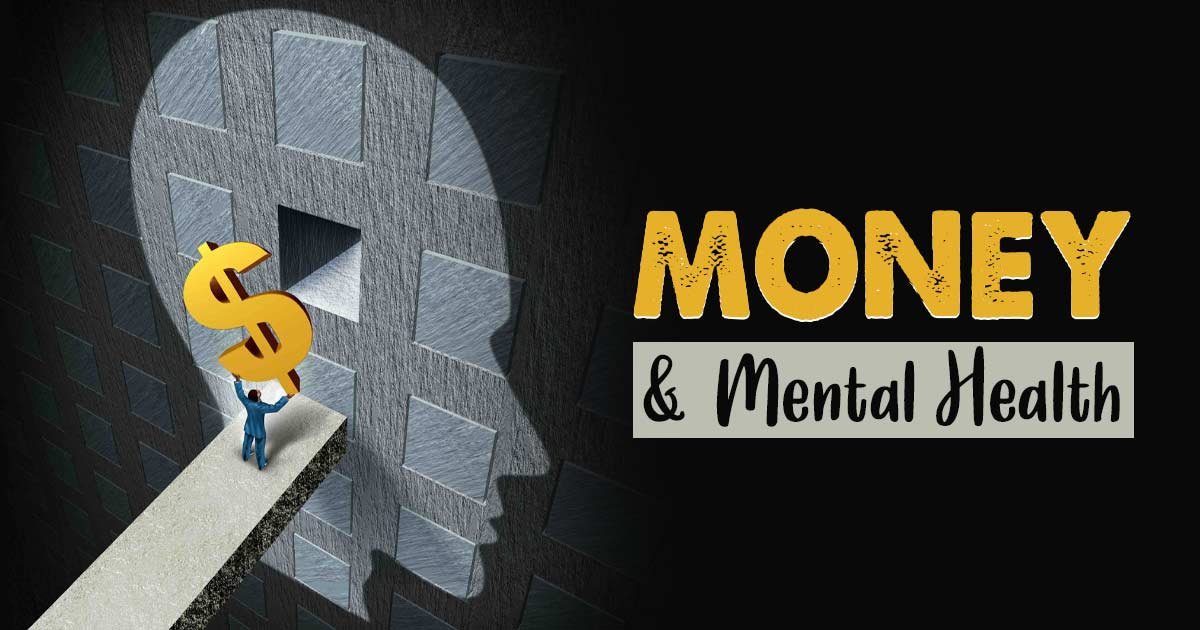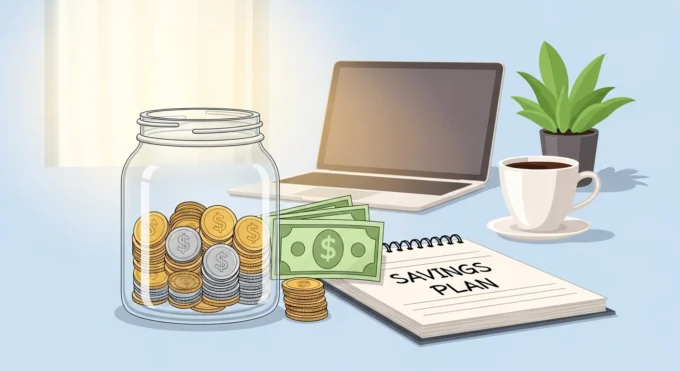The True Cost of Money Worries
You know the feeling: that constant knot in the stomach caused by financial anxiety. In fact, money worry is now a top modern stressor. This chronic financial stress affects everything. For instance, it hurts your sleep, your focus, and even your relationships. People often ignore this emotional toll. However, constant money worries deplete your energy daily. So, what if the solution wasn’t just about earning more?
The real key lies in the psychology of personal finance specifically, how you choose to save. Building a financial cushion is more than just getting rich. Instead, it’s a critical investment in your mental health. Clearly, financial security shields you from lifes uncertainties. It fundamentally changes how your mind handles risk. Therefore, this directly links financial anxiety and mental health.
Understanding the Shield of Emotional Security
Our brains naturally fear uncertainty. When our stability feels threatened, our brain’s stress center activates. This triggers a “fight or flight” response. Living in this constant state of alert defines chronic financial stress. Conversely, a healthy savings balance acts as an emotional shield. It protects your mind from perceived danger. Thus, it establishes much needed emotional security.
This security offers powerful psychological benefits. First, it greatly reduces perceived risk. An established financial cushion turns a major car repair into a small inconvenience. This simple viewpoint change reduces chronic, low level stress immediately. Furthermore, managing and building savings gives you a critical feeling of increased control. This feeling of agency fights the helplessness that often fuels financial anxiety. Finally, reaching small savings goals strengthens your self belief. This process builds your overall psychological resilience.
The Science of Calming Financial Stress
Knowing you have a reserve changes how your brain manages risk. Generally, stress hormones drop quickly when a problem arises because you can handle it. This shows why an emergency fund for peace of mind is so essential. Indeed, it calms your nervous system. Your mind knows you have a buffer. This resilience lets you live without fear of financial disaster, providing inner peace. Ultimately, we see a strong link between financial anxiety and mental health. When one improves, the other follows.
Actionable Steps for Budgeting and Stress Reduction
You don’t need a huge salary to benefit from saving. To begin with, you need an effective, behavioral system to gain relief. The best strategies make building wealth feel automatic and easy. This easily creates financial resilience.
To reduce financial anxiety, you must automate your savings. Adopt the simple “Set It and Forget It” rule. Treat your savings contribution like any required bill. Set up an automatic transfer immediately after payday. Send the funds to a separate account. Clearly, this removes the stress of deciding to save each month. It guarantees consistency and stops impulsive spending.
In addition, you gain great benefit by defining the purpose of your savings. Money feels like a tool, not a sacrifice, when it has a clear role. Use “mental accounting” to give your money a job. For example, instead of one vague “Savings” account, create named accounts. Label them for your emergency fund for peace of mind or travel. Assigning a specific role makes it much harder to spend that money on unrelated items.
The absolute best tool against crippling financial anxiety is establishing that emergency fund for peace of mind. Financial experts suggest saving three to six months of essential living expenses. Remember, this funds job is not to earn interest. Its sole purpose is to serve as insurance against stress. The knowledge that this buffer exists offers more value to your emotional well being than any small interest payment it might accrue.
The Domino Effect: Financial Stability on Emotional Well being
The long term effects of financial stability affect every part of life. When you reduce financial stress, you get the freedom to improve your overall quality of life.
A major positive impact of reducing money worries is improved sleep. Studies clearly show that high financial stress causes restless nights. As the pressure eases, your nervous system relaxes. You get deeper, better rest. Furthermore, this stress reduction leads to healthier relationships. Money conflicts often destroy relationships. A clear, shared plan for budgeting for stress reduction reduces arguments and builds trust.
Crucially, having a financial safety net gives you the freedom to make better life decisions. You are less likely to stay in a job you hate. You will not feel forced into high interest debt reactively. Consequently, financial security gives you the mental space for intentional choices. These choices truly support your long term goals. This shows exactly how financial freedom and happiness are closely connected. If you want to learn more about setting specific savings goals, you can check out this guide on effective goal setting.
Managing Risk to Protect Your Mental Health and Finances
True financial security isn’t just about saving; it’s about mitigating risk. A sudden, unexpected event should not send you back into a cycle of financial anxiety and mental health crises.
Risk management involves two key areas: insurance and debt control. Reviewing your insurance coverage (health, home, auto) ensures that catastrophic events do not wipe out your savings. Think of insurance as the ultimate psychological safety net; it removes the fear of the extreme worst-case scenario. Additionally, managing and paying down high-interest debt, such as credit card balances, is crucial. High debt feels like running a race while weighted down. Actively reducing it is a powerful form of financial self-care that immediately reduces daily financial stress. You can find excellent resources on debt management here from a trusted external finance authority.








Leave a comment